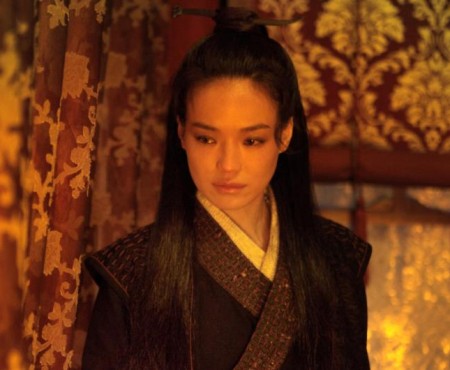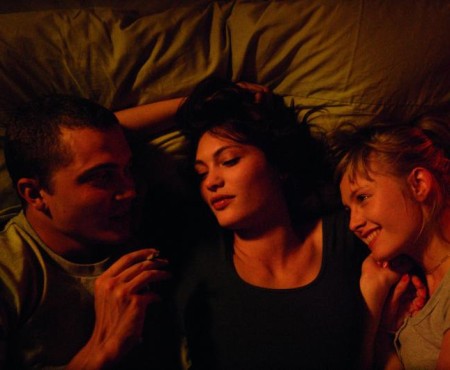Everything seems perfectly in place for Todd Haynes to deliver a great film in Carol. Excellent source material, strong actors, a period setting and milieu he proved himself adept at depicting in Mildred Pierce—a classical, straight up piece to show the other directors at Cannes how it’s done the old fashioned way. Instead, there’s something undercooked here, something missing. The result is entirely adequate, but inexplicably lacking in passion.
Based on Patricia Highsmith’s 1952 novel, Carol follows a forbidden romance between Therese Belivet (Rooney Mara), a shop-girl in her 20s, and an older woman, Carol Aird (Cate Blanchett), in the middle of a divorce and custody battle. They lock eyes in the department store Therese works at, and there’s the sense in that very moment that there is no going back. These two women will not be able to resist each other, and that 1950s New York will not take kindly to their union.
What follows is a slow-burning fuse of desire—Haynes’s subtle camera movement, and direction of the actors makes it clear these women want each other, even though it isn’t until halfway through the film that they reveal their attraction. This tension should drive the film, but the scenes leading up to their inevitable tryst come off surprisingly dull and weightless.
There may have been a casting mistake with Mara, whose talent is unquestionable, but whose doll-like, straight-faced demeanor is in a serious need of personality. As such, the romance that is supposedly boiling beneath the surface feels too implied, never palpable. There’s also something so specifically modern about Mara’s look that she seems out of place in the period. Blanchett plays her role exactly as one would expect, strongly, classically, but there’s also something missing here, as if her character is too generic, too obvious.
Haynes’s formal system was at its best in Mildred Pierce, a Sirk/Fassbinderesque melodrama that isn’t too far from the world of Carol. Yet here the mise en scène lacks a sense of emotion and urgency. Edward Lachman’s cinematography is characteristically lovely to look at, but the direction of the image is often bland and functional. Early on, Haynes establishes a recurring motif of Mara framed behind a window looking out, obscured by light and cold glass. She’s trapped, and what she wants can only be viewed from a distance. It’s a nice touch, but not enough when the film otherwise seems to be very by the book.
As Therese comes to terms with her sexuality and attempts to break free of conformity, the stakes don’t feel as high as they should. It’s not until the film’s final sequence – an extraordinary climax that picks up the slack for what came before –that one is really convinced that the love between these characters is the matter of life and death, of imprisonment or freedom, that it is meant to be.
2.5 Stars out of 4.





















4 thoughts on “Cannes Review: “Carol””
You obviously have zero knowledge of the story, and zero context.
There is definitely something lacking in Carol; it does feel very half-baked. I found there to be minimal chemistry between the characters, and that may have something to do with casting Rooney Mara like you said. I’m not sure what the commenter below me is referring to, but I completely relate to everything you’ve written about this film.I was very disappointed.
This film is a masterpiece.
Just saw it today and was left cold. The movie is like a meal in a fancy restaurant; it’s well presented but you always feel like chowing a cheeseburger straight after.